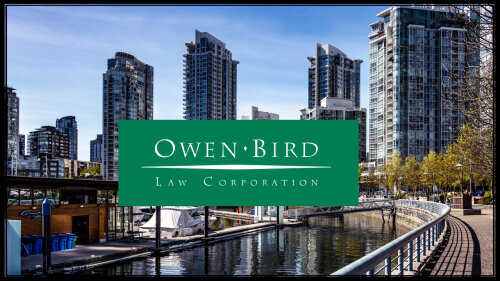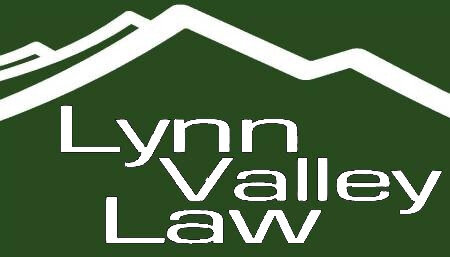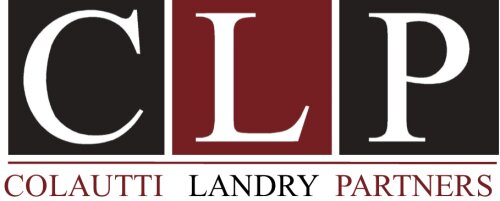Best Property Insurance Lawyers in Canada
Share your needs with us, get contacted by law firms.
Free. Takes 2 min.
Or refine your search by selecting a city:
List of the best lawyers in Canada
About Property Insurance Law in Canada
Property insurance in Canada is designed to protect property owners from financial losses due to damage, theft, or liability associated with their property. The insurance generally covers damages from events like fire, theft, weather-related incidents, and other specified perils. Canadian property insurance policies can vary depending on the provider and the type of property insured, including homes, commercial buildings, and rental properties. It is a critical aspect of financial planning for property owners to ensure they are adequately covered against potential risks.
Why You May Need a Lawyer
There are several common situations where individuals may require legal help regarding property insurance:
- Disputes with insurance companies regarding claim denials or settlement amounts.
- Interpretation of complex insurance policy terms and conditions.
- Issues related to property insurance fraud or misrepresentation.
- Coverage disputes involving unforeseen events not clearly outlined in a policy.
- Legal proceedings following significant property damage requiring substantial claims.
Engaging with a lawyer can provide guidance in navigating these issues, protecting your legal rights, and ensuring fair treatment and compensation from insurance providers.
Local Laws Overview
Property insurance in Canada is primarily regulated at the provincial level, and each province may have particular laws and regulations relevant to property insurance. Key aspects often include:
- Mandatory insurance requirements for certain types of properties or under specific circumstances.
- Consumer protection laws tailored to prevent unfair practices by insurance providers.
- Transparency requirements related to policy terms, conditions, and exclusions to prevent misunderstandings or misrepresentations.
- Dispute resolution processes provided by provincial insurance regulatory bodies.
Understanding these local laws can be crucial in ensuring compliance and protecting oneself during any insurance disputes.
Frequently Asked Questions
What types of property insurance are available in Canada?
Common types include home insurance, tenant insurance, condominium insurance, and commercial property insurance. Each type provides different coverage suited to the type of property ownership and risks involved.
Is property insurance mandatory in Canada?
While property insurance is not legally mandatory across Canada, mortgage lenders typically require homeowners insurance as a condition of financing. Commercial landlords may also require business tenants to carry insurance.
What does property insurance typically cover?
Property insurance typically covers damage from fire, theft, vandalism, weather-related incidents, and liability for accidental damage caused to others. Specific coverage details will depend on the individual policy.
How are insurance premiums calculated?
Premiums are generally based on factors like property value, location, coverage amount, deductibles, property usage, and security features. Insurers assess risk to price policies accordingly.
What should I do if my property insurance claim is denied?
If your claim is denied, review the denial letter for specific reasons, consult your policy documents, and consider seeking legal advice to contest the denial or negotiate with your insurer.
Can an insurer cancel my property insurance policy?
An insurer can cancel a policy under specific conditions outlined in the policy, such as non-payment of premiums or fraudulent claims. They must provide appropriate notice as per local laws.
What is a deductible in property insurance?
A deductible is the amount you agree to pay out-of-pocket before your insurance policy starts to cover a claim. Higher deductibles usually lead to lower premiums.
How do I choose the right amount of coverage?
Select coverage that adequately reflects the replacement cost of your property and belongings. Consult with your insurance agent to assess your needs based on potential risks.
What is meant by actual cash value and replacement cost?
Actual cash value refers to the property's value at the time of loss, accounting for depreciation. Replacement cost covers the cost to repair or replace property using new materials without depreciation.
How do I update my policy if I make changes to my property?
Contact your insurance provider to update your policy when you make significant changes to your property, such as renovations or additions, to ensure that you maintain adequate coverage.
Additional Resources
Consider reaching out to the following resources for additional help:
- Insurance Bureau of Canada - offers consumer information and assistance.
- Your provincial insurance regulator - for guidance specific to your province.
- OmbudService for Life & Health Insurance - assists in resolving disputes.
- Consumer associations in your region - provide general advice and resources.
Next Steps
If you find yourself in need of legal assistance regarding property insurance, consider the following steps:
- Review your insurance policy and any related documents to understand your coverage.
- Consult with a legal professional specializing in property insurance law for advice and representation.
- Look for local legal aid services if cost is a concern.
- Contact your provincial insurance regulator for guidance on dispute resolution.
Taking informed steps can help you effectively address issues and ensure protection under your property insurance policy.
Lawzana helps you find the best lawyers and law firms in Canada through a curated and pre-screened list of qualified legal professionals. Our platform offers rankings and detailed profiles of attorneys and law firms, allowing you to compare based on practice areas, including Property Insurance, experience, and client feedback.
Each profile includes a description of the firm's areas of practice, client reviews, team members and partners, year of establishment, spoken languages, office locations, contact information, social media presence, and any published articles or resources. Most firms on our platform speak English and are experienced in both local and international legal matters.
Get a quote from top-rated law firms in Canada — quickly, securely, and without unnecessary hassle.
Disclaimer:
The information provided on this page is for general informational purposes only and does not constitute legal advice. While we strive to ensure the accuracy and relevance of the content, legal information may change over time, and interpretations of the law can vary. You should always consult with a qualified legal professional for advice specific to your situation.
We disclaim all liability for actions taken or not taken based on the content of this page. If you believe any information is incorrect or outdated, please contact us, and we will review and update it where appropriate.
Browse property insurance law firms by city in Canada
Refine your search by selecting a city.














